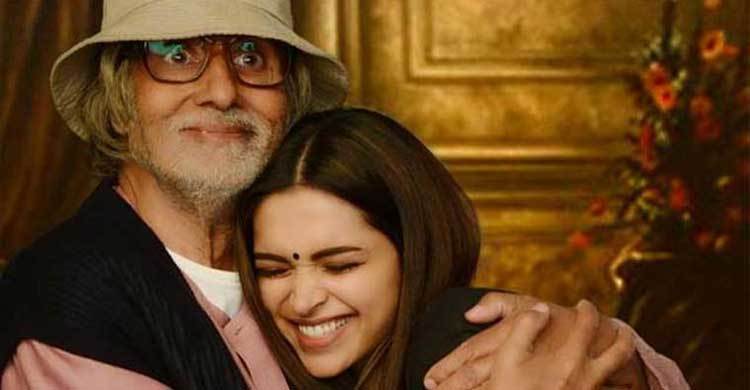BBC list of best 100 films gave a damn about Indian cinema

The BBC released a list of top 100 films of 21st Century recently. The BBC compiled its list by polling 177 film critics from every continent except Antarctica. Each critic submitted 10 films and out of the 599 submissions received, the top 100 were chosen. And after all that effort, not one Indian film made to the list. Not one.
So, while the list has three Asian films in top 10, India failed to find favour. The three Asian films made it to top 10 of the BBC list were Wong Kar-wai’s In the Mood for Love (second), Hayao Miyazaki’s Oscar-winning Spirited Away (fourth) and Edward Yang’s Yi Yi (eighth).
Granted that a large majority of Indian (I refrain from using the term ‘Bollywood’ - there’s more to Indian film industry than that) films, especially blockbusters, would hardly please a seasoned critic. Most popular Indian films are insipid, in terms of plot and acting, and due to lack of discerning audience, filmmakers are reluctant to push the boundaries. Many Indian films even rely on item numbers to sell tickets.
But India is still the largest film producer in the world, and there are many Indian films that do push those boundaries, that go beyond the accepted norms and manage to make groundbreaking cinema, often with limited resources. So, we chose eight films, made in the last 16 years, in India, that were as good as any on the BBC’s list.
These films have varied themes and belong to different genres. Since these are my own choices and are unlikely to please everyone, be kind. Like every list, this is subjective. You can post your own choices in the comments section. The films are not in a particular order.
1. Lagaan:
Directed by Ashutosh Gowarikar, Lagaan starring Amir Khan and Gracy Singh was a 2001 period epic. It catapulted Gowarikar to the category of Indian filmmakers one took seriously. In the backdrop of oppressive British rule of the Indian subcontinent, Lagaan accumulated not only national but international acclaim for its superb cinematography - of shots featuring immense dusty plains, realistic rural sets and opulent British buildings. And the oppressed triumphing against their oppressors always makes for a good story. Lagaan made it to the shortlist of Academy Award for Best Foreign Language Film.
2. Gangs of Wasseypur:
A funny, ruthless and bloody revenge saga extending over three generations, Anurag Kashyap’s Gangs of Wasseypur was a gargantuan 319-minute long film, thus released in two parts. In a considerable departure from the usual, the ‘protagonists’ in Gangs of Wasseypur were as morally depraved as the antagonists. Shot on a low budget, Kashyap drew inspiration from actual gang wars between coal mafia in and around Dhanbad along with Quentin Tarantino’s films and put in a generous amount of gore, humour, and sex to make a delectable (and sometimes disturbing) mix.
3. Haider:
With a setting of Kashmir insurgency, Haider tackled many sensitive matters pretty deftly without being too judgemental. It was another triumphant entry in Vishal Bhardwaj’s glorious line of Shakespeare adaptations set in Indian context (Maqbool and Omkara drew inspiration from Macbeth and Othello respectively) and was based on one of the most famous works by the Bard: Hamlet. With a taut storyline, strong performances particularly by Shahid Kapoor as the titular character, Haider was relentlessly absorbing.
4. Aligarh:
Aligarh is an important film that, like Haider, handled a sensitive matter masterfully. Manoj Bajpayee delivers an absolutely storming performance as a homosexual professor who is persecuted just because of his sexual orientation. Bajpayee’s work is complemented quite well by Rajkumar Rao as an enthusiastic real-life young journalist Deepu Sebastian (who incidentally worked at the Indian Express then).
5. Piku:
With an irreverent tagline ‘Motion se hi Emotion’, a deceptively simple story and charmingly drawn characters, Piku is a living proof that to make good, enjoyable cinema, one does not have to construct convoluted plots with several characters. Every character in the movie, whether it’s Deepika Padukone’s caring yet independent Piku, Amitabh Bachchan’s irritable yet likable Bhaskor Banerjee or Irrfan Khan’s jaded and cynical Rana Chaudhary - they are all somehow relatable, and you feel as if you have encountered either them or people like them at some point in your past. An excellent soundtrack by Anupam Roy only adds to the fun.
6. Masaan:
One of the few films that dared to take oppressive societal mores that restrict personal independence head on, Masaan was a surprisingly swell directorial debut by Neeraj Ghaywan. It dexterously weaves two independent storylines that run parallel and rarely, if ever, meet. Richa Chaddha once again demonstrates why she is a force to be reckoned with by getting into her role with a professional ease and debutant Vicky Kaushal is pretty convincing as a shy and awkward small-town boy.
7. Queen:
I am yet to meet a person who has seen this feel-good film and did not like it. Really, Queen is almost impossible to dislike. While watching it one can’t help but wonder why Bollywood failed to tap Kangana’s reserves of talent before. She is simply marvellous and you hardly notice she’s giving a performance. She is Rani Mehra. A simple and clever story, Queen has an element of feminism, but is subtle enough not to appear preachy. Instead, at its core, Queen is a piece of entertainment and it totally succeeds.
8. Margarita with a Straw:
In Margarita with a Straw, Kalki Koechlin’s character is a teenage girl who is not afraid to express her sexual urges and finds herself enjoying getting intimate with both men and women. This alone would make many in India cringe. Add to that, she suffers from cerebral palsy. This is a film that makes viewers uncomfortable for the first few minutes, but then pulls them in and does not let them go for the rest of the narrative. Again, this film makes feminists like me happy.


